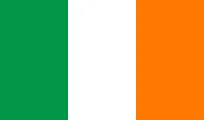Scientific Fact Sheet: Ireland at a Glance
Geographical and Demographic Facts
·
Location:
Northwestern Europe, occupying most of the island of Ireland, west of Great
Britain.
·
Area:
Approximately 70,273 km².
·
Population:
Around 5.1 million (as of 2025).
·
Capital:
Dublin.
·
Climate:
Temperate maritime, with mild winters and cool summers.
Political and Economic Overview
·
Government Type:
Parliamentary democracy.
·
Currency:
Euro (€).
·
Major Industries:
Information technology, pharmaceuticals, financial services, and agriculture.
·
Global Influence:
A member of the European Union (EU) and a hub for multinational corporations.
Education System in Ireland
·
Language of
Instruction: English is the primary language, with some programs in
Irish.
·
Higher Education
Institutions: Over 30 universities and institutes of technology.
·
Notable
Universities: Trinity College Dublin (TCD), University College Dublin
(UCD), National University of Ireland Galway (NUIG), and University of Limerick
(UL).
Ireland's education system is internationally recognized for its high
standards, cutting-edge research opportunities, and strong industry
connections, making it an attractive study destination for international
students.
Why Study in Ireland?
Ireland offers a unique blend of academic excellence, career opportunities,
and cultural richness, making it an ideal destination for international
students. Key advantages include:
·
World-Class
Universities: Irish universities rank among the best in Europe,
particularly in business, technology, and medicine.
·
English-Speaking
Environment: Studying in Ireland provides international students with
a strong command of English, improving their global career prospects.
·
Scholarship
Opportunities: Many government and university scholarships are
available to support international students.
·
Innovation and
Research: Ireland is a global leader in technology and research,
attracting multinational companies and startups.
·
Cultural and Social
Life: With a rich history, vibrant arts scene, and welcoming people,
Ireland provides an enriching student experience.
·
Work Opportunities:
International students can work part-time during their studies and have access
to post-graduate work visas.
Scholarships in Ireland for International Students 2025
Ireland offers a range of scholarships through government initiatives, university
programs, and private organizations to attract talented students from around
the world.
1. Government-Funded Scholarships
The Irish government provides several scholarship programs aimed at
supporting outstanding international students.
Government of Ireland International Education Scholarship (GOI-IES)
·
Eligibility:
Non-EU/EEA students applying for bachelor’s, master’s, and Ph.D. programs.
·
Coverage:
€10,000 stipend plus a full tuition fee waiver for one year.
·
Deadline:
Typically in March-April 2025.
·
Application
Process: Students apply through the Higher Education Authority (HEA).
Fulbright Scholarships
·
Eligibility:
Students from the United States pursuing postgraduate studies or research in
Ireland.
·
Coverage:
Tuition fees, travel costs, and a monthly stipend.
·
Deadline:
Usually in October 2024 for the 2025 academic year.
2. University-Specific Scholarships
Many Irish universities offer scholarships to international students based
on merit, financial need, and research potential.
Trinity College Dublin Scholarships
·
Programs:
Undergraduate, master’s, and Ph.D. programs.
·
Coverage:
Partial to full tuition fee waivers and living stipends.
·
Eligibility:
High academic achievement and strong motivation letters.
University College Dublin (UCD) Global Scholarships
·
Eligibility:
International students across various disciplines.
·
Coverage:
Tuition fee reductions ranging from €5,000 to full tuition.
·
Application
Deadline: Varies by program.
National University of Ireland Galway (NUIG) Scholarships
·
Programs:
Various undergraduate and postgraduate programs.
·
Coverage:
Partial tuition fee waivers and merit-based financial support.
3. Erasmus+ Scholarships
·
Eligibility:
EU and non-EU students participating in exchange programs or joint master’s
degrees.
·
Programs:
Short-term and full-degree studies.
·
Coverage:
Tuition fees, travel allowances, and monthly stipends.
·
Application
Process: Students apply through their home universities.
4. Ph.D. and Research Scholarships
Ireland offers excellent research opportunities through university and
industry collaborations.
Irish Research Council Scholarships
·
Eligibility:
Ph.D. and postdoctoral researchers in various fields.
·
Coverage:
Tuition fees, living stipends, and research funding.
·
Deadline:
Usually February 2025.
Science Foundation Ireland (SFI) Fellowships
·
Eligibility:
Research students in STEM disciplines.
·
Coverage:
Research grants, tuition fees, and monthly stipends.
How to Apply for Scholarships in Ireland?
Applying for scholarships in Ireland typically involves the following steps:
1. Research Available Scholarships: Check
eligibility criteria, funding coverage, and deadlines.
2. Prepare Required Documents: This may include
academic transcripts, recommendation letters, a personal statement, proof of
English proficiency, and a research proposal (for Ph.D. applicants).
3. Apply Online: Submit applications through
university portals or scholarship bodies.
4. Attend Interviews (If Required): Some
scholarships require an interview as part of the selection process.
5. Wait for Results: Successful applicants are
notified via email.
FAQs About Scholarships in Ireland
1. Can I study in Ireland for free?
While tuition fees exist, fully funded scholarships can allow students to
study without expenses.
2. Are scholarships in Ireland competitive?
Yes, scholarships are highly competitive, and applicants must have strong
academic records and motivation letters.
3. Do I need IELTS or TOEFL to apply for scholarships?
Yes, most scholarships require proof of English proficiency, such as IELTS
or TOEFL scores.
4. Can international students work while studying in Ireland?
Yes, students from outside the EU/EEA can work up to 20 hours per week
during term time and full-time during holidays.
5. What is the cost of living in Ireland?
The cost of living varies by city. In Dublin, students need approximately
€1,000–€1,500 per month for accommodation, food, and transportation.


Comments
Post a Comment